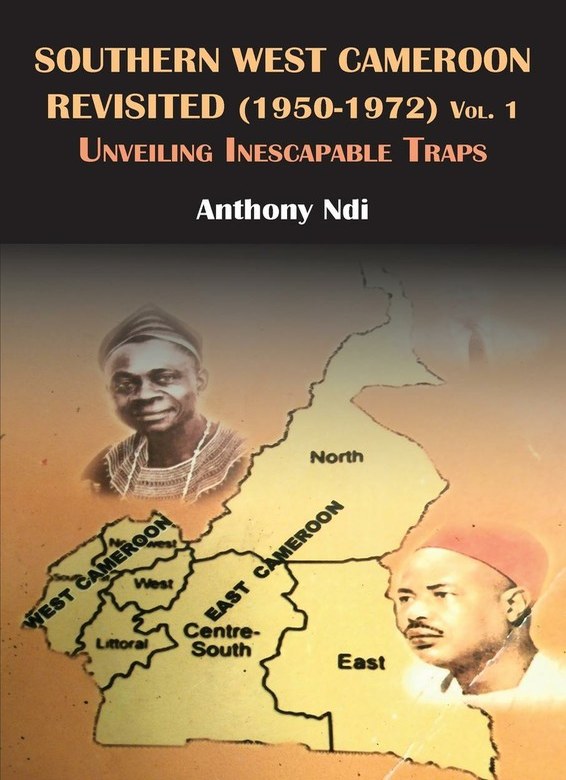written by Anthony Ndi
Unveiling Inescapable Traps
This book contributes to discussions on the topical issue of “Fifty Years after the independence of the Southern Cameroons”, by taking a critical look at the process that lead up to Southern Cameroons’ ‘reunification’ with la République du Cameroun. This was the period spanning from 1951 to 1961, and possibly up to 1972. This immediately conjures two overriding factors; first, the British colonial policy in Southern Cameroons, which dominated political life in the period leading up to: the Plebiscite, the Buea Tripartite Conference, the Bamenda All Party Conference, the Foumban Constitutional Conference and the Yaounde Tripartite Conference during the phase, 1959-1961. This constituted one huge hoax, whilst that from 1961-1972 and, beyond was dominated by the enigmatic figure of President Ahrnadou Ahidjo. At the heart of the first, are the declassified British secret papers which have uncovered the ugly undercurrents that characterised British colonial policy, while on the other hand, is President Ahmadou Ahidjo, who practically personalized the administration of the Federal Republic of Cameroon. His domination of the entire existence of the Federal Republic of Cameroon, (1961-1972) was overshadowed by the fact that he could not brood sharing power with any individual or institution. Simply put, he was allergic to democratic principles-or any form of opposition to his authority. As well, he was a matchless dictator especially in his ambivalent dealings with Southern West Cameroon. Apparently, it was the “destiny” of Southern Cameroons ‘that up to 1961, it was harnessed to the tenterhooks of Great Britain and from 1961-1972, transferred to those of the Ahidjo Regime; neither of which wished its people well.
| ISBN | 9789956791446 |
| Pages | 378 |
| Dimensions | 229 x 152mm |
| Illustrations | B/W Illustrations and Maps |
| Published | 2014 |
| Publisher | Langaa RPCIG, Cameroon |
| Format | Paperback |





4 comments
“In his new work, Anthony Ndi bombards us with exciting new revelations about the events leading up to the reunification of Cameroon and beyond. What counts for many still today as a tragic historical memory, is given substance and cause in his careful analysis of the sources available, now reinforced by new materials released since 2012 from the archives of the UK Foreign Commonwealth Office. Ndi’s focus on the personalities of the major players leading to the breaking of the promise made by the British to support independence for Southern Cameroons and the subsequent plebiscite decision to re-join La République du Cameroun, enriches our understanding of the mixture of shrewd tactics by and naive blunders of the many that actually shaped events. As a case study in the realities of how decisions were made and later regretted in a period of quite shameful indiscretion, we are given a salutary account of how a history that hitherto had been written from the standpoint of the victor, needed to be and here is rewritten from that of the vanquished.”
Michael Rowlands, Emeritus Professor of Anthropology and Material Culture, University College London
“A monumental treatise with startling revelation on Cameroons’ national history, written with superb confidence….”
Professor Tafah Edokat Oki Edward, Vice Chancellor, University of Bamenda
“… written by a luminous historiographer [….] the historical plot espoused by the author resides in a setting of controversies where the tension between the force of argument and the argument of force seem to be conspicuously evident and where rhetoric and reality stand astride”
Mathew Basung Gwanfogbe, PhD, Associate Professor of History, University of Bamenda.
“Anthony Ndi argues forcefully and convincingly that Ahidjo’s ‘bad faith’ and determination to introduce a centralized personal authoritarian rule largely explains the failure of the Federal Republic of Cameroon… without a fair trial period”
Professor Tazoacha Asonganyi, The University of Yaounde I